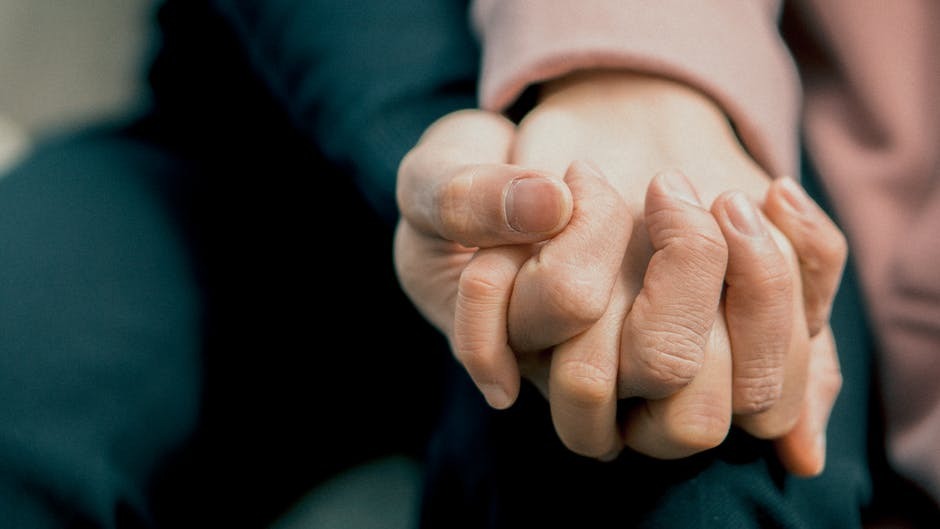
Supporting your loved one in recovery is not just about physical support. Support also requires gentleness and willingness to listen and provide hope in your loved one’s darkest moments. Recovery is an ongoing process, even for those who have been working on recovery for quite some time. Supporting their recovery is about more than just helping them overcome triggers but also about helping their mental health. Following are six ways you can help your loved one continue on their lifetime journey of recovery.
#1. Be Responsive and Respectful
The first step to helping your loved one recover from any condition, whether physical or emotional, is being responsive and respectful. Recognize that your loved one never wanted to struggle with addiction. The fact of struggling is difficult and accepting a diagnosis was most likely life-changing. As your loved one moves into recovery, recognizing that their concerns and needs are valid is the best way to respect their needs.
Being responsive means listening and being willing to act if necessary. Recovery rarely occurs in a straight line and helping your loved one manage the ups and downs of recovery will help them become more stable and capable of managing triggers on their own. They do not want to struggle, and your willingness to listen and support will ensure their success.
#2. Be an Advocate
Your loved ones need you in their recovery, not only for support from you but also to ensure proper support and respect from others. There are people in this world who are ignorant of mental health issues and stigmatize those who suffer. So, being an advocate for your loved ones is necessary. Be prepared to educate others and stand up for your loved ones because sometimes they fear standing up for themselves.
Stigma is real and, unfortunately, can negatively impact your loved one’s sense of well-being. As you begin the process of helping your loved one move into the real world after time spent in the safety of treatment, you may find that they even stigmatize themselves. Encourage and educate them as they continue along the hard road of coping with their addiction. Remind them they are not alone; they deserve respect from others, especially themselves.
#3. Ask Questions
Your loved ones may fear speaking aloud their worries and concerns. They may also not know how to properly communicate with you about their feelings and well-being. Recognize that shame lives in silence, and your loved one may be experiencing shame about their diagnosis, behaviors, and past experiences. Again, they may be stigmatizing themselves. Remember to ask questions. Asking questions allows for growth and acceptance.
#4. Provide Stability
Letting your loved ones know you are there for them and not leaving is one of the best ways to support them. As they navigate their diagnosis and live in the world after treatment, they need to know they are safe and loved. They want to know they have a family that cares about them and will not leave them. You may never have thought of abandoning them, but reminding them of your willingness to stay will do wonders for their well-being.
#5. Know the Signs of Relapse
Your loved ones are working through recovery to the best of their abilities. They know they need to work hard and may not recognize when they have been triggered. They may not recognize old behavior patterns because they did them so often before recovery. They may be struggling with events and people they do not identify as problems.
One thing you can do to support your loved ones is to help them recognize people, places, and things that trigger them and help them avoid relapse when triggered. Know what relapse might look like for your loved ones. Remember, you are not alone in helping your loved ones. There is help available through various community resources and The Guest House’s Alumni Program. Encourage your loved one to notice their behaviors, and again: ask questions.
#6. Help Your Loved One Grieve
Accepting a diagnosis of a co-occurring mental health disorder can be devastating. Suddenly, your loved ones have entered the realm of not being who they thought they were. They may identify themselves as broken and imperfect. As they go through treatment, they will learn that such is not true, but they may still grieve the loss of who they believed themselves to be. Help them grieve while reminding them they are still who they were. Also, remind them that their diagnosis does not define them. Remember, they are the same person they were and still deserving of love and respect.
Things to Remember
Your loved one is entering a new chapter of their life and needs all the support they can get. You are not alone in providing this support. A key thing to remember as you support your loved ones is to take care of yourself. You cannot help your loved one if you are flailing in your own self-care. You must model self-care and self-love.
Helping your loved ones during their recovery takes a willingness to listen and an enduring hope in their ability to overcome obstacles. You must care for yourself while also caring for their needs. The Guest House provides support for you and your loved ones as they navigate life beyond treatment. If you or someone you know is struggling with a mental health disorder or substance abuse issue, believing in the possibility of recovery is the first step to overcoming any problem. Asking for help in the beginning stages is critical, but so is asking for help as you continue the process of recovery. The Guest House offers Alumni support for those who have completed treatment and understand how difficult re-entering the world can be for those who struggle with addiction and mental health. We believe in your ability to overcome. Contact The Guest House at (855) 483-7800 and learn how we can help.